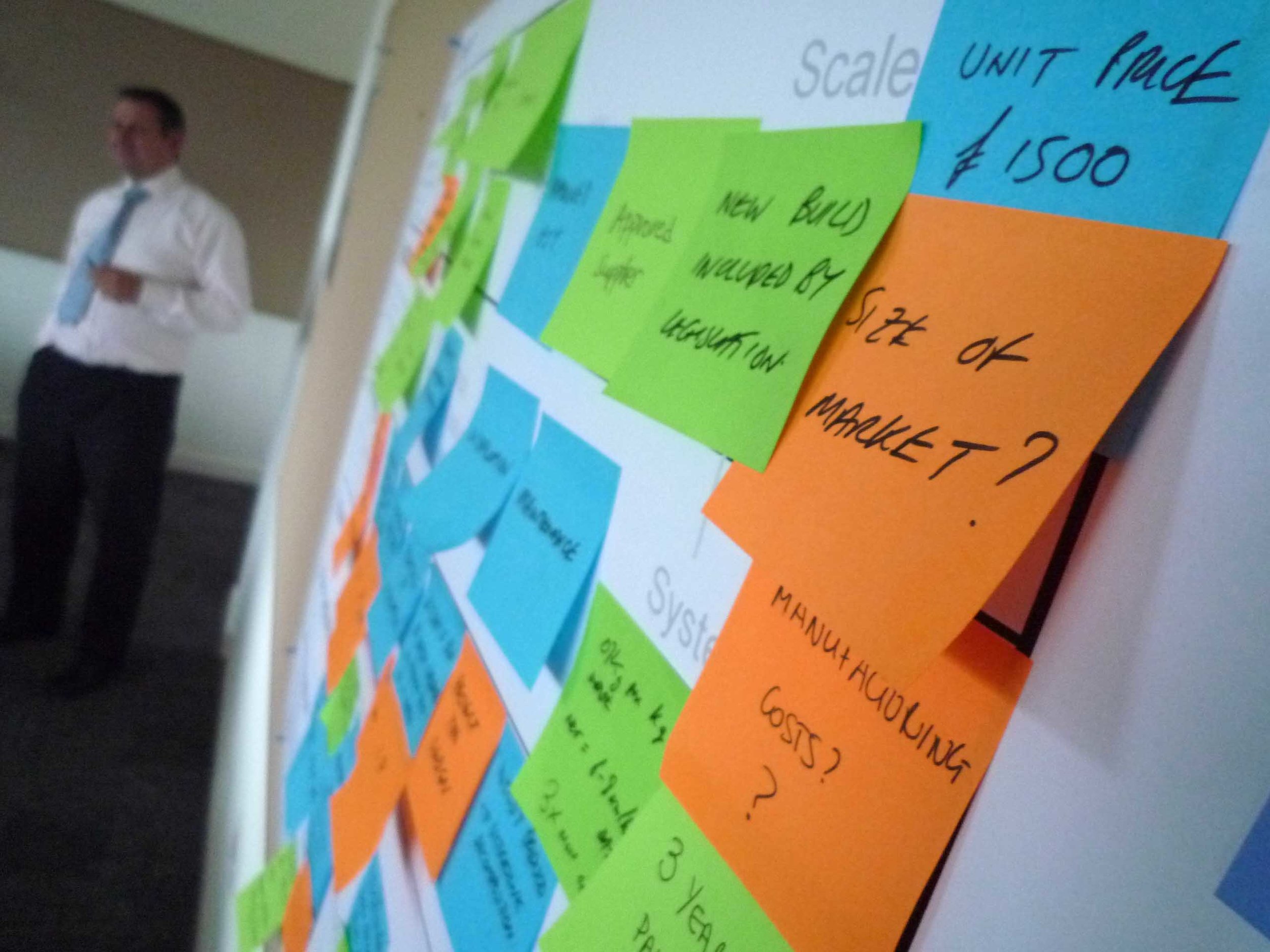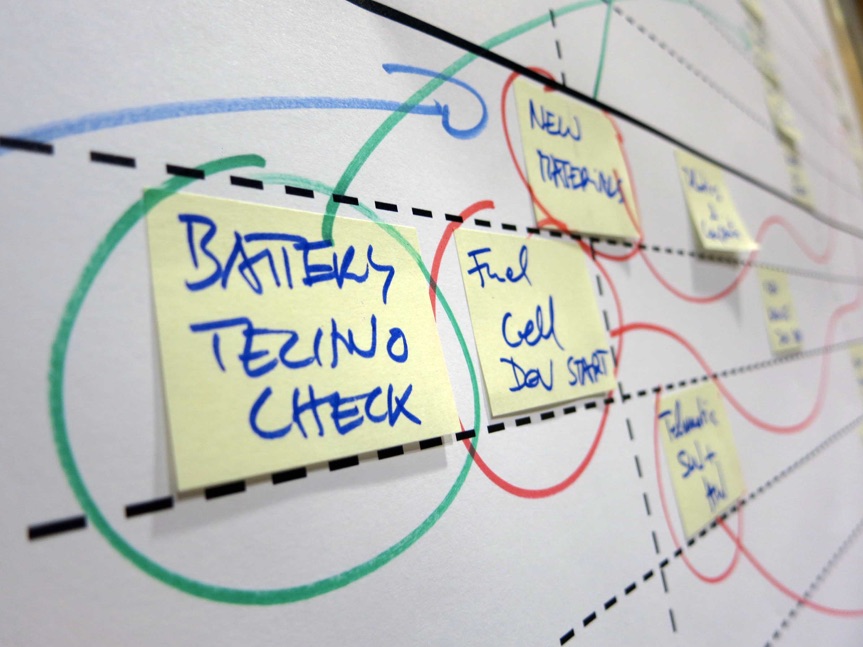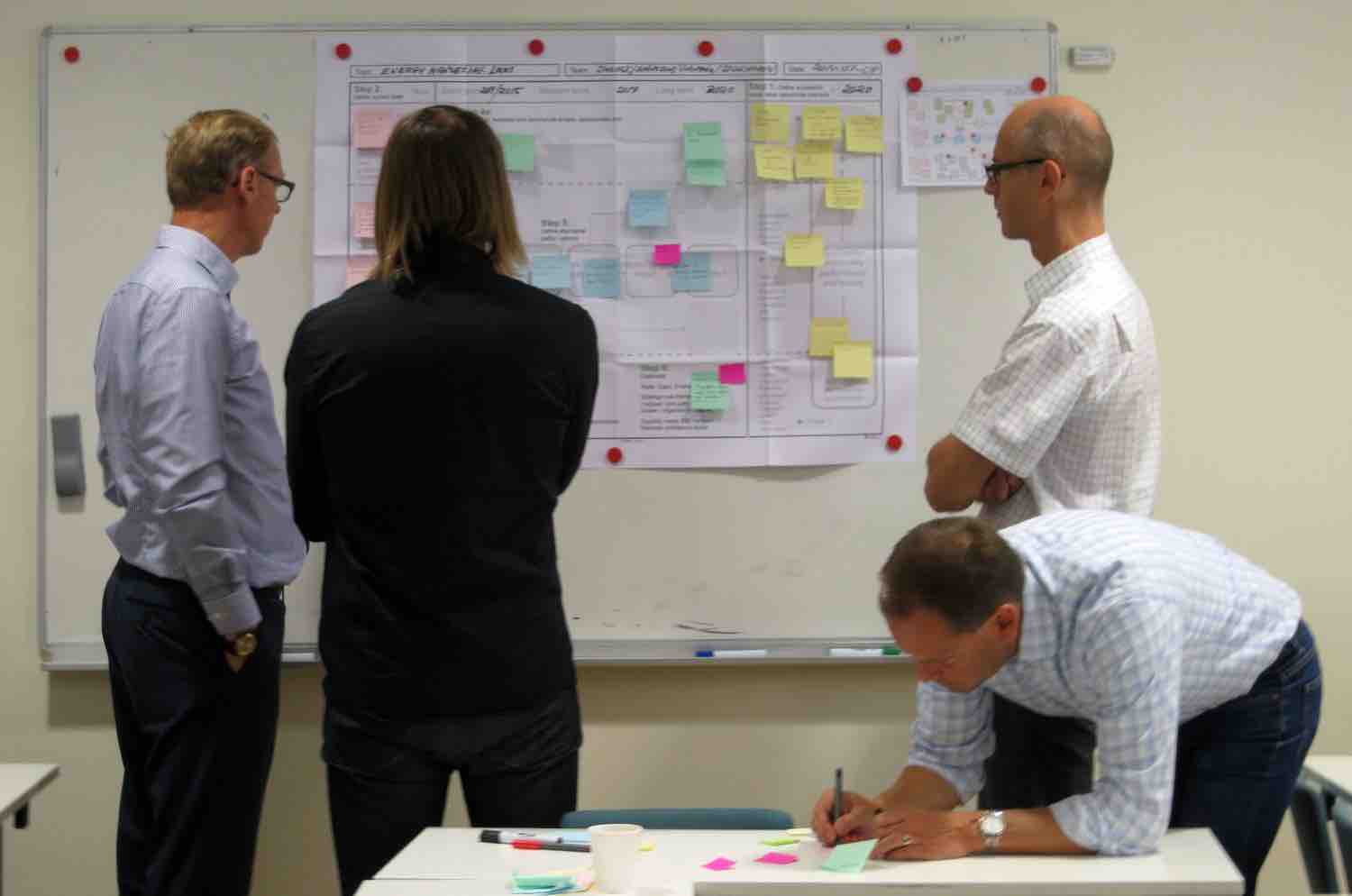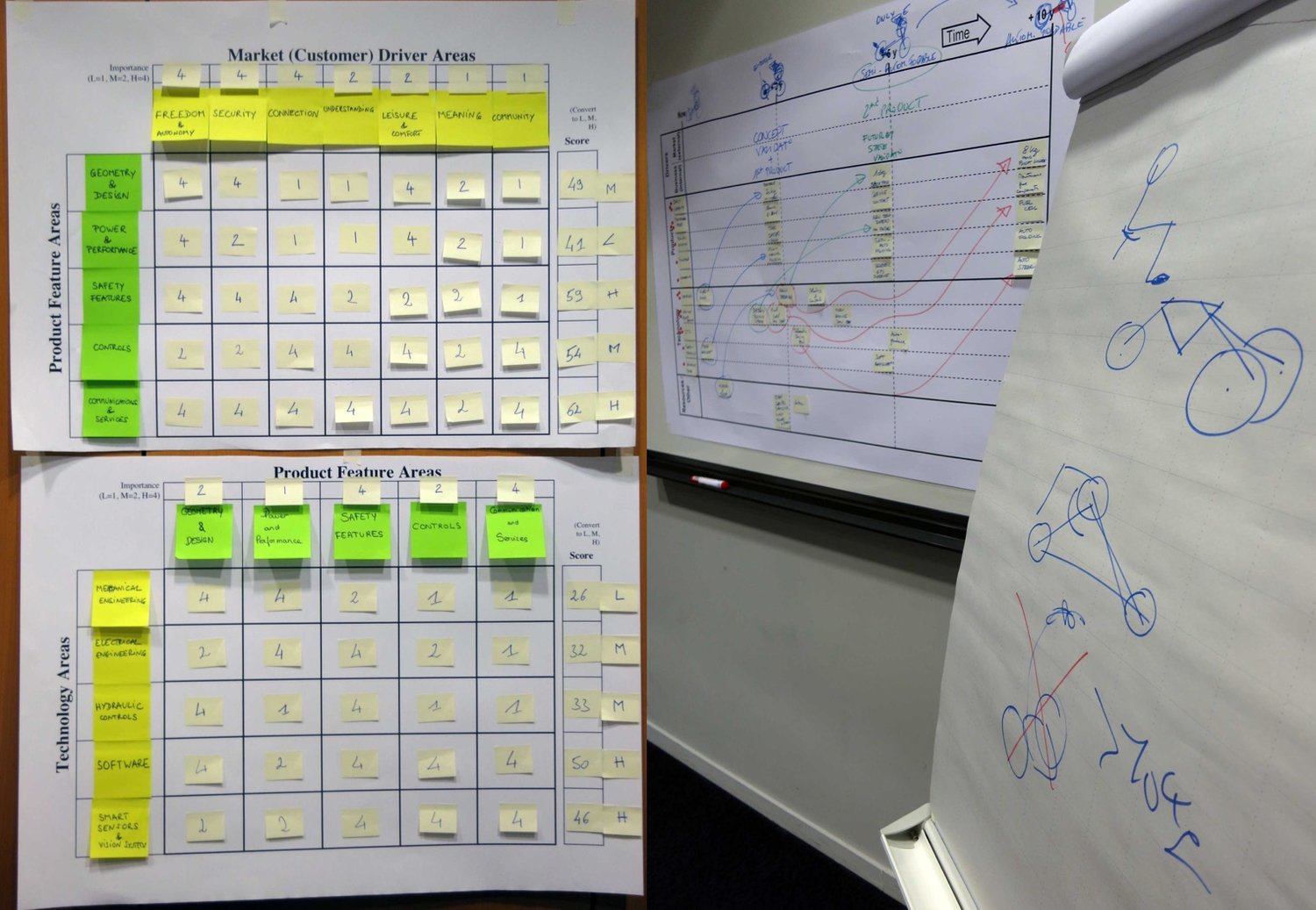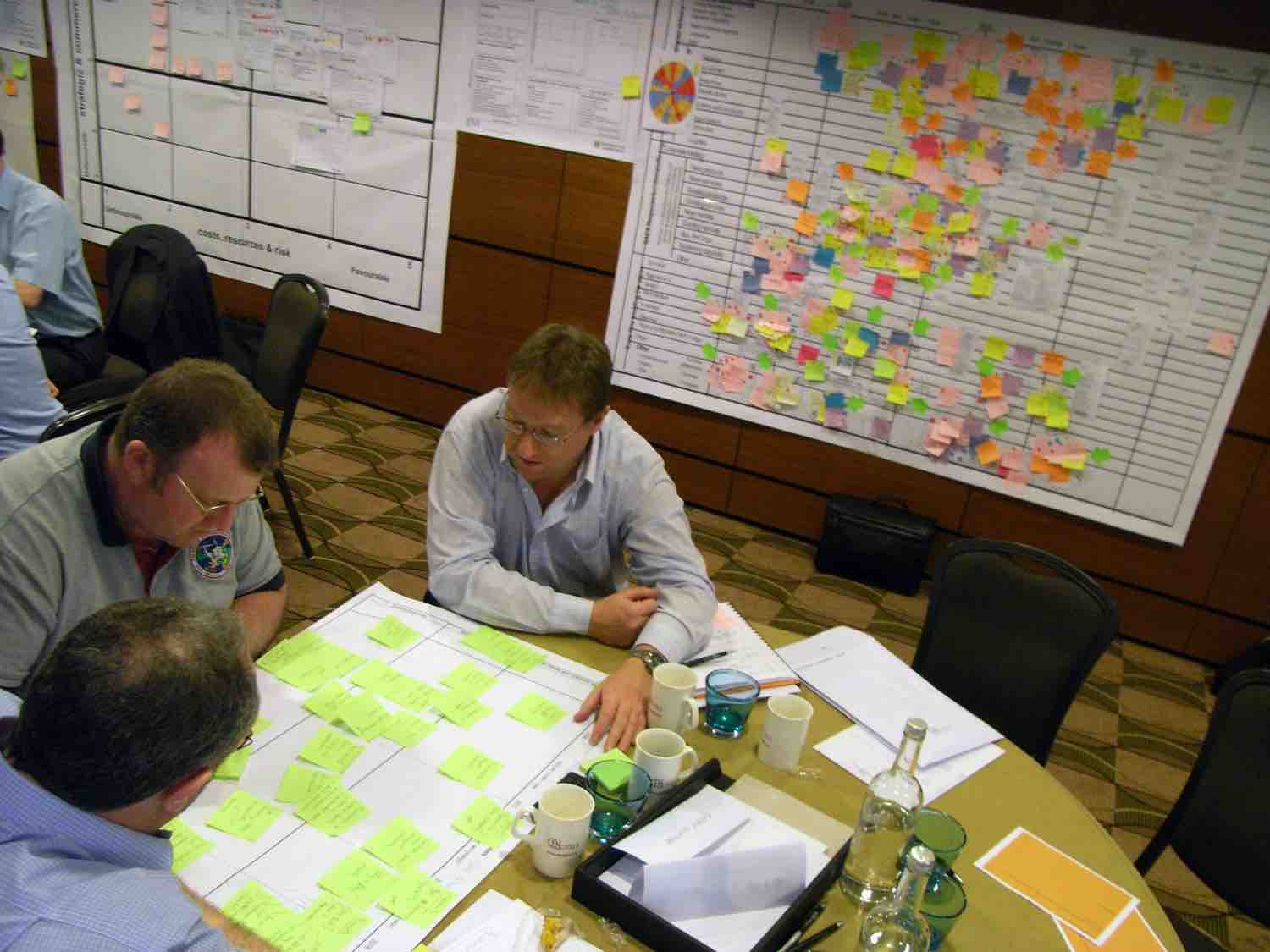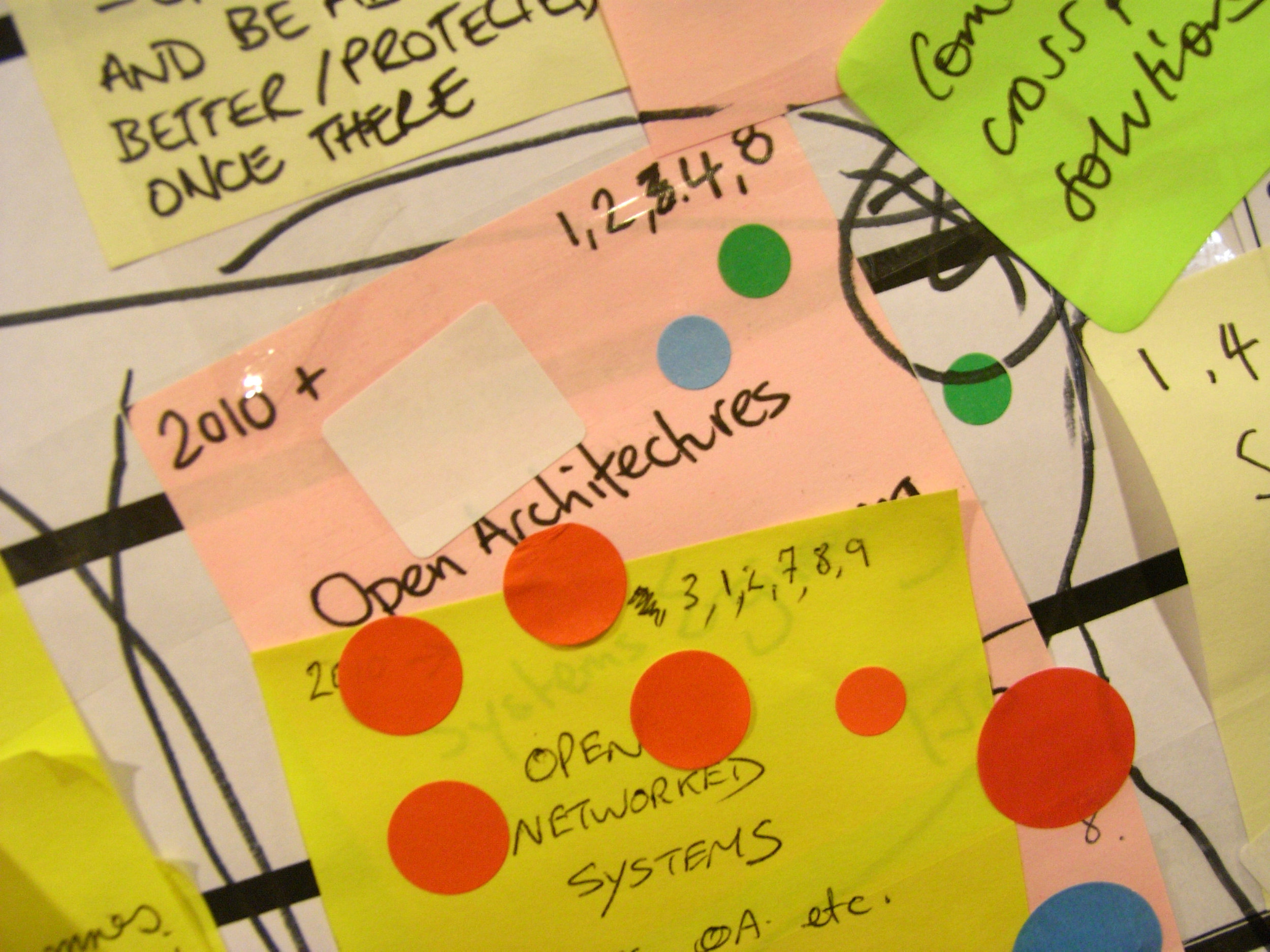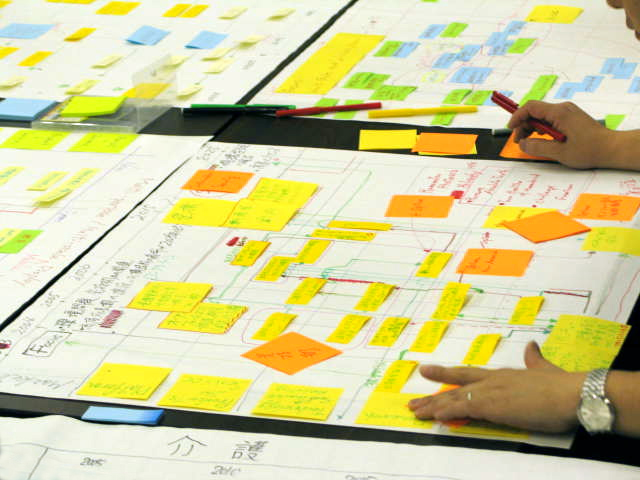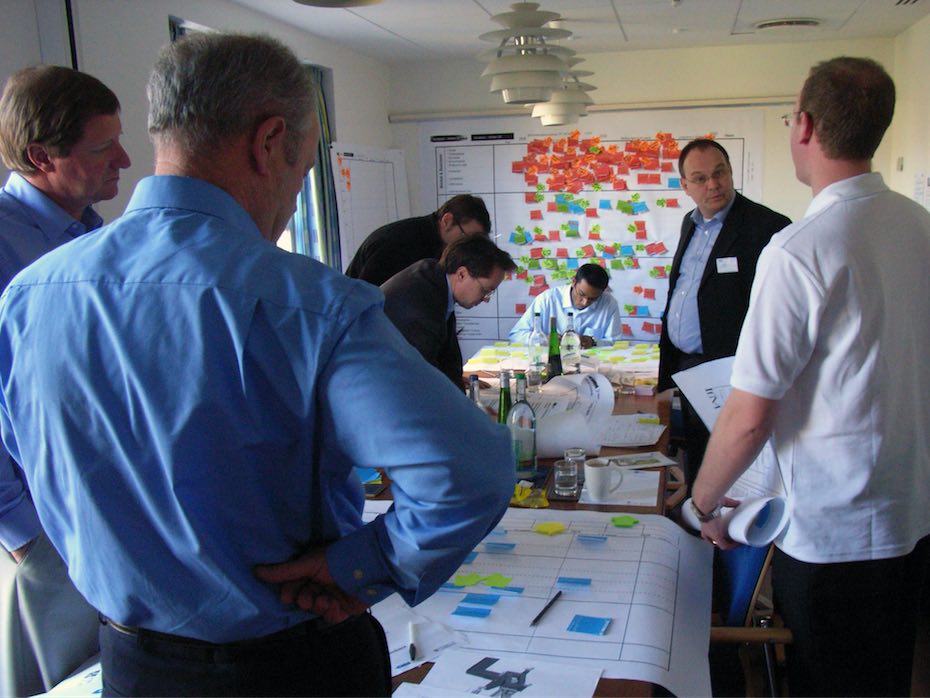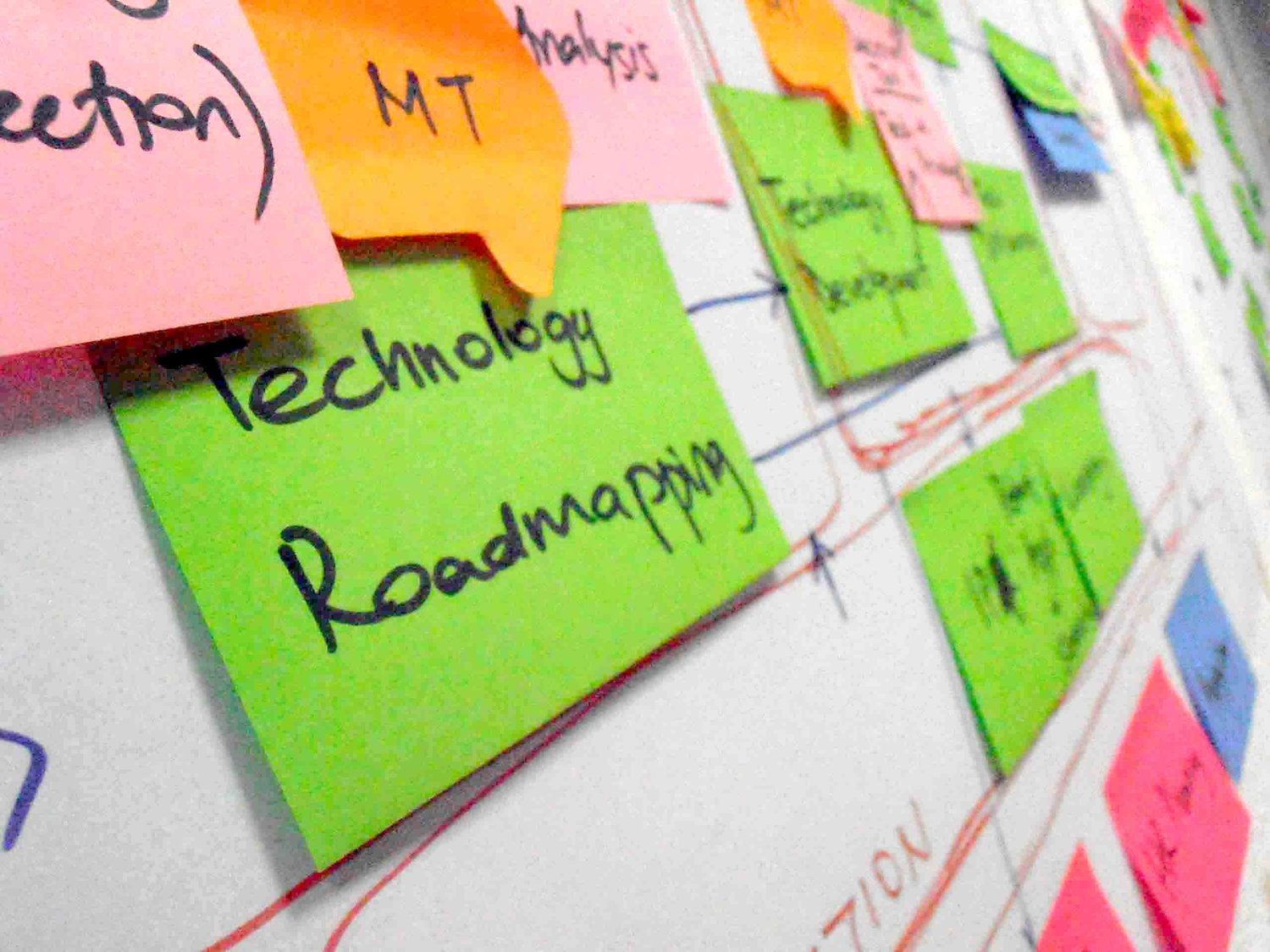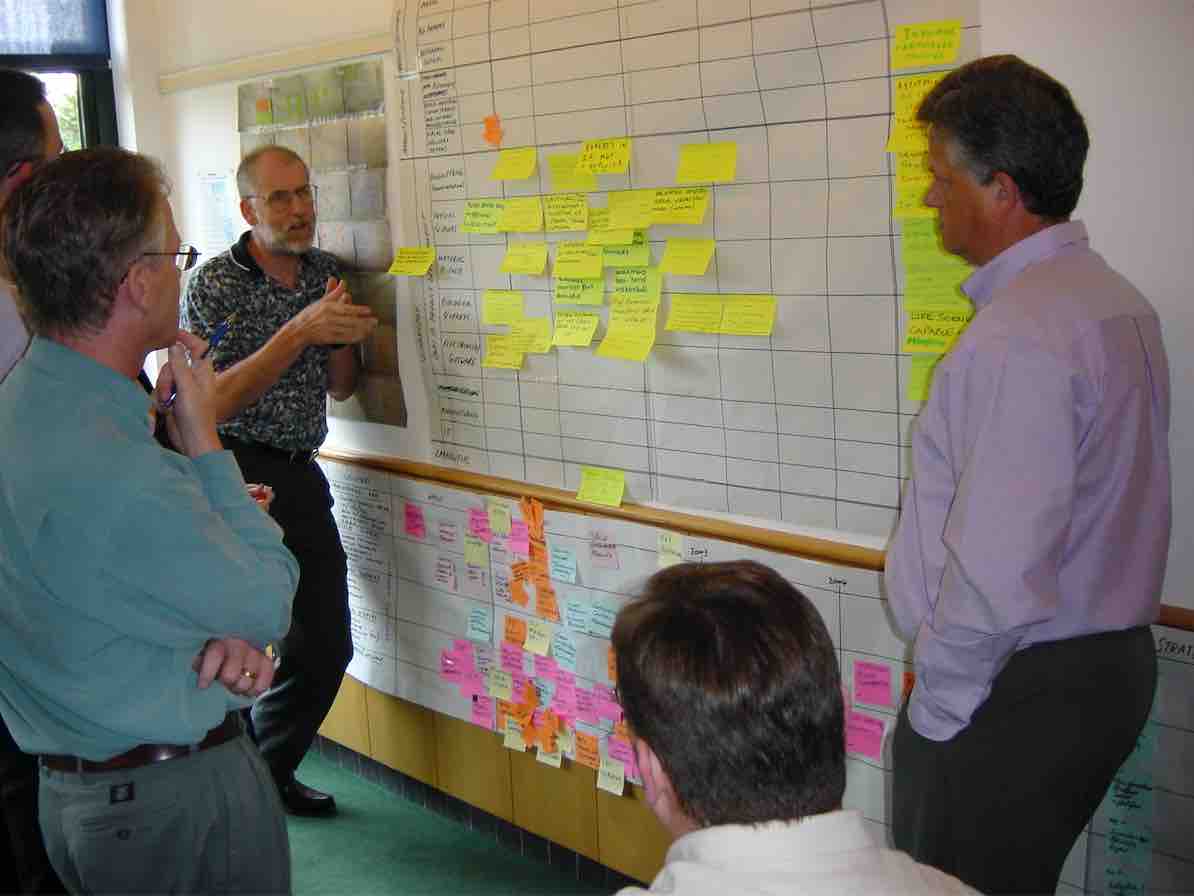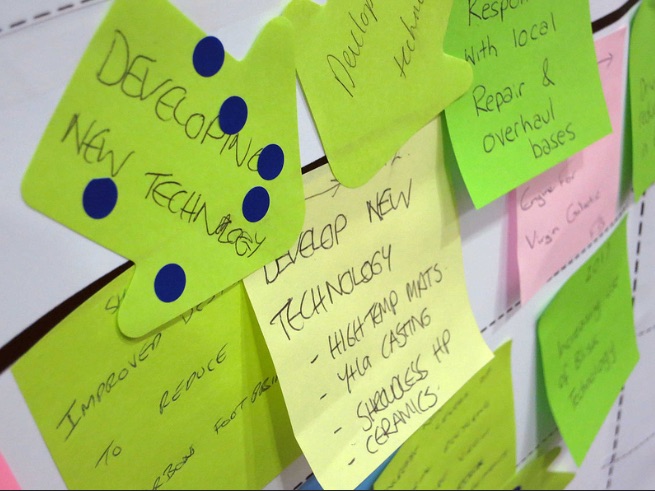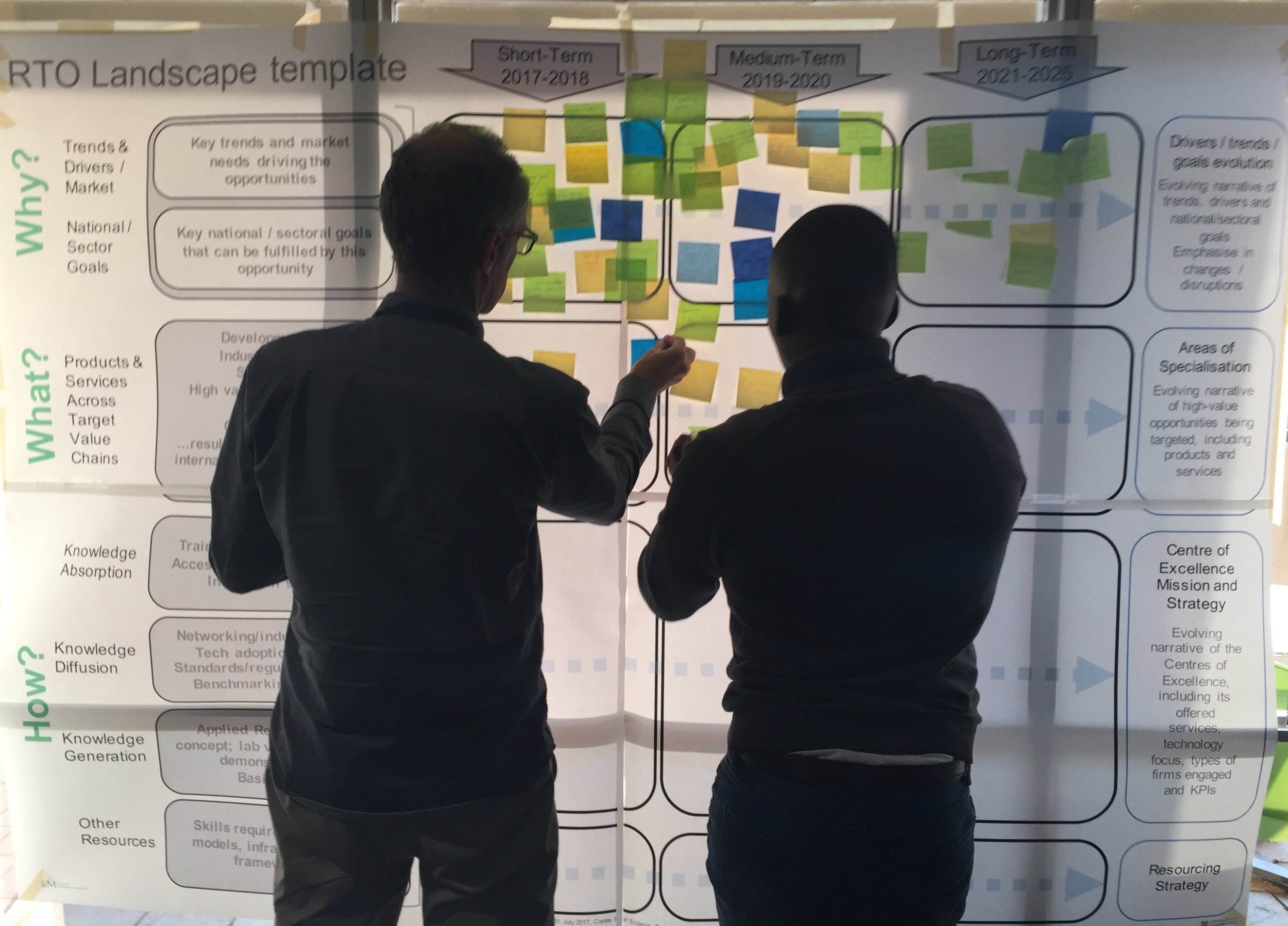Roadmapping
'Roadmapping' is an interesting and flexible class of method (management tool) for supporting strategy and innovation. It has application well beyond the high tech sectors where it originated, including business, corporate, sector and national initiatives. Its use has been demonstrated to correlate with business performance in the context of product innovation, with plenty of scope for increased use, reflected by the relatively low levels of uptake to date (roadmapping is not covered in most business school education programmes and text books):
"About twice as many best performers (38%) use product roadmaps than do worst performers (19%)" - Cooper & Edgett (2009)
As a structured visual framework, roadmapping supports communication and alignment, providing a scaleable platform for developing coherent strategic management toolkits. Roadmapping is a flexible approach in terms of purpose and format, underpinned by a simple generic conceptual framework, providing support to strategy and innovation processes.
Programme and investor roadmaps from Tokamak Energy, for fusion power (Pearson et al., 2020)
Polished roadmap visuals can be very useful for communication amongst internal and external stakeholders, but a lot of the value lies in the process of roadmapping, supporting strategic dialogue, creativity, insight generation and decision making. Roadmaps are not static long term plans, and can be dangerous if treated as such. Roadmapping provides strategic navigational support to the organisation, with a need to update roadmaps as the journey unfolds.
Cambridge roadmapping research and practice has focused on understanding the generic roadmapping framework through empirical investigation, its function as an integrating hub for strategy, processes and toolkits, and how to configure it for general application to strategy and innovation in a lean and agile manner.
An animated explantation of roadmapping:
Follow these links for perspectives on:
Various resources and updates can be found via the 'News and info' menu, with pointers to relevant and interesting external resources, with workshop templates also available to download.
Roadmapping is a very flexible approach, and can be applied in all strategic contexts, adapted appropriately. Confidence in this has developed through hundreds of applications in diverse circumstances. This is illustrated in the figure below, which provides examples of applications differentiated according to two dimensions: 1) System hierarchy, ranging from product to business / corporate and sector levels; and 2) Divergent exploratory applications for early stage innovation to convergent applications downstream.
Workshop deployment of roadmapping and related strategic tools enables sharing and capture of expert knowledge, as a basis for discussion, analysis, prioritisation and synthesis:
Roadmapping supports structured visual narrative in workshops and beyond - here are two published examples of retrospective roadmaps, and a workshop template:
Captured at the end of a large training workshop... the sound of 1,000 post-it notes being unstuck:
There are many software systems that can support roadmapping - an internet search will reveal multiple options. However, software is not the focus of this website, as the soundtrack above demonstrates - here the emphasis is on the human aspects of the roadmapping process.
Digital whiteboard and other online platforms can emulate paper & post-it workshop processes, with adaption. Each method has advantages and disadvantages, and so a hybrid solution is likely to be most effective in practice. The relentless advance of digital technologies will continue to impact on business processes, requiring active research and experimentation to understand their potential and utility.
2019 experiment comparing physical & digital roadmapping methods (source: Prof Maicon Oliveira)
If you have any queries regarding research, training, collaboration or other support please contact me at rob.phaal@eng.cam.ac.uk.



